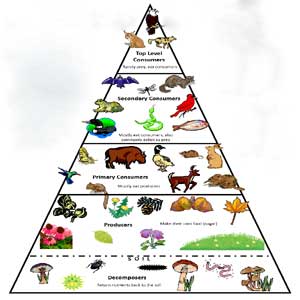In the eastern US, ants are integral to plant biodiversity because they help disperse seeds. But ants' ability to perform this vital function, and others, may be jeopardized by climate change, according to Nate Sanders, Associate Professor of Ecology and Evolutionary Biology at the University of Tennessee, Knoxville.
"Ants are critically important to most ecosystems," Sanders said. "They eat other insects, circulate nutrients, increase turnover in the soil, and move seeds around."
The researchers, led by Katie Stuble from UT and Shannon Pelini at Harvard Forest, noticed dramatic changes in the ants' daily activity in each chamber.
"If the temperature increases by just a half a degree Celsius, the most important seed-dispersing ants basically shut down," said Sanders. "They do not go out and forage and do the things they normally do."
Stuble observed that, on average, the ants foraged for about ten hours a day at normal temperatures. When temperatures were raised just a half a degree, the ants stayed in their nests underground and foraged just an hour.
The absence of ants' seed dispersal and nutrient cycling could have profound influence on biodiversity. For instance, it is believed that more than half of the plants in the forest understory of the Great Smoky Mountains National Park rely on ants for seed dispersal. Ants are found in ecosystems everywhere but in Antarctica and Iceland.
The researchers' goal is to provide information about the effects of climate change on biodiversity and ecosystems.
"We know that climate change is happening," Sanders said. "Lots of models make predictions about how biodiversity is going to respond. It will either respond by adapting, moving or going extinct. If you can't keep up with climate change, you will go extinct."
















Related Items
A decade of data from NASA unveils dramatic secrets of stellar infancy
As China rises, Ukraine’s critical raw materials will be vital for West
Potato farmers see new hope with upcoming International Research Hub